The 7 cheapest electric cars you can buy right now
Here are 7 electric cars you can buy for under $40K
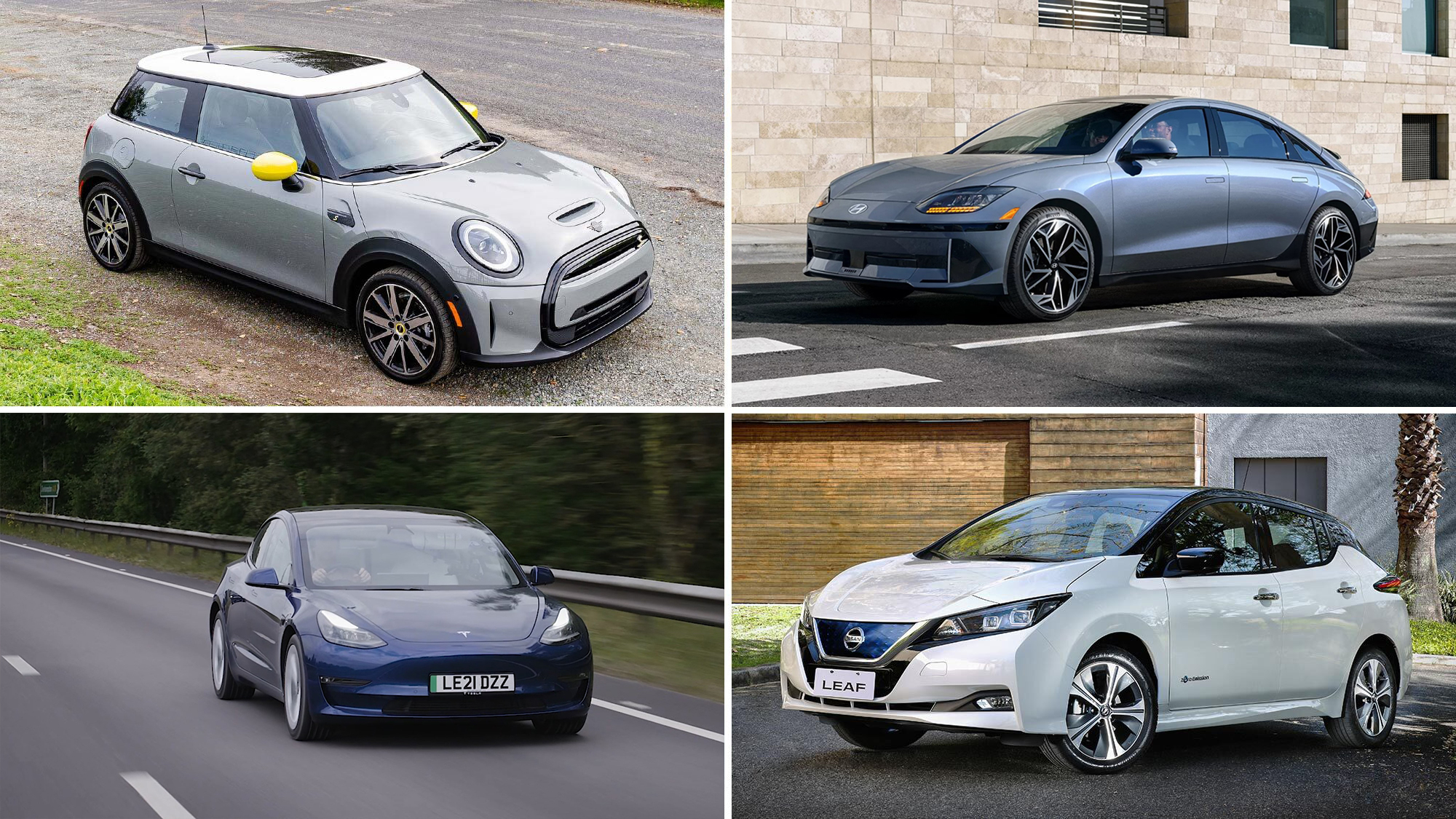
The list of the cheapest electric cars is not particularly long. The fact electric cars are an emerging technology, it already makes them more expensive than your typical gasoline-powered vehicle. The fact a lot of automakers are working from the top down, and pritoritizing premium models, isn't helping matters either.
So ditching gasoline and buy an electric car means you need to be able to afford one. Buying a used electric car may expand your options, but there are a few great models on the cheaper end of the spectrum you can buy brand new. Here are the cheapest electric cars you can buy now, with starting prices under $40,000.
Nissan Leaf — from $28,140
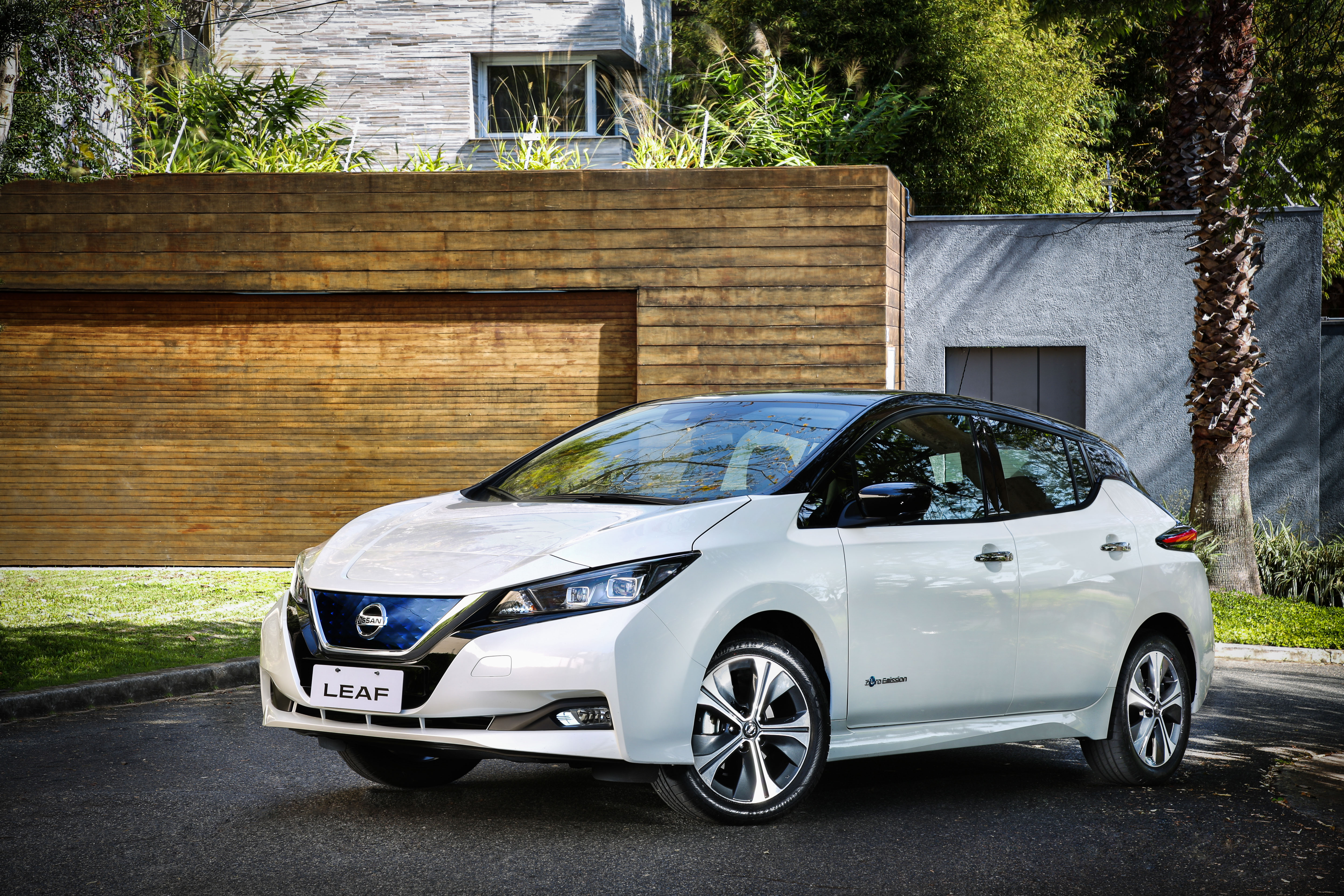
The Nissan Leaf’s low price and tax credit eligibility means it’s worth your attention. But if money is tight, you better be ok with some incredibly mediocre range estimates. Because the cheapest Leaf models are rated for only 149 miles.
If you’d rather boost that figure to 212 miles you’ll need to part with more cash. Again, not very impressive, and in both instances you’ll need to contend with the fact the car uses a CHAdeMO rapid charger instead of the CCS used by all other cars. Adapters have started appearing on the market in recent months, but they do cost several hundred dollars. The Leaf certainly doesn’t do a great job of selling itself these days.
Still the Nissan Leaf does have a lot going for it, provided you stick to local journeys. As we noted in our Nissan Leaf review, it’s surprisingly feature-rich for an entry-level electric car, and it’s one of the few cheap cars that’s consistently been eligible for the federal EV tax credit. On top of that, it manages to squeeze in 41.5 cubic feet of cargo space, and certain models have Level 2 autonomous driving with ProPilot.
The Nissan Leaf's short range and the CHAdeMO charger aren’t ideal, but there’s still plenty to love — especially if you only need a compact around-town car.
Mini Electric — from $30,900

If you like the design of the modern Mini, but want to drive around on electricity, this might be the EV for you. Though the iconic design is the main selling point, especially since its range estimate is a measly 114 miles.
Get instant access to breaking news, the hottest reviews, great deals and helpful tips.
This is the price you pay for something cheap and visually memorable. But, range aside, the Mini SE has plenty going for it. There’s a reason our Mini SE review called it the “king of compliance cars.”
The Mini SE is small and capable, albeit limited to urban travel rather than long-distance road trips. It’s also extremely fun to drive, which is part of what makes a Mini a Mini. While the 0-60 time is a pretty weak 6.9 seconds, it’s got a great go-kart feel to the drive — which is perfect for winding back roads with a lot of corners. The small stature also makes is much easier to park.
If you have a short commute, or you don’t plan on driving very far, the Mini SE could prove to be an excellent addition to your garage. Just make sure you have some sort of back-up plan, should those pesky long-distance journeys become a necessity.
Fiat 500e - from $32,500

Certainly not the most glamorous of cars, the Fiat 500 is a popular choice for anyone wanting a smaller footprint on the road. The Fiat 500e is the electric version of the city car, and is rated for 162 miles of range on a single charge. 85kW rapid charging also means you can reach 80 percent in around 35 minutes and while 5 minutes should be enough to recoup around 30 miles of driving.
Inside you have wireless Apple CarPlay and wired Android Auto, plus built-in access to Amazon Alexa. There are also basic automatic safety systems including adaptive cruise control, lane departure warnings, drowsy driver detection and an emergency break to avoid accidental collisions — particularly with pedestrians or cyclists.
This is a small car, admittedly, so the trunk space is just 7.51 cubic feet. But there is a total of 101 cubic feet in the cabin itself — so it's not all lost. But if you need to lug around a lot of people and stuff, this may not be the car for you.
Hyundai Kona Electric — from $32,675
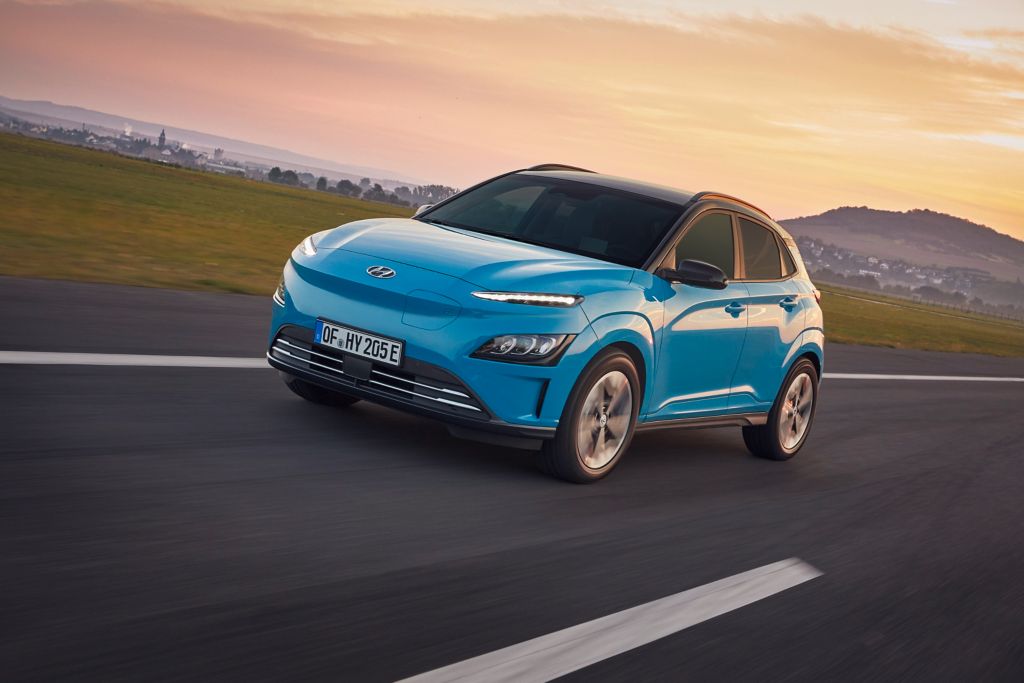
The mid-range Hyundai Kona is one of those cars that’s available in almost every kind of drivetrain: gasoline, plug-in hybrid and electric. But the electric model is definitely noteworthy, with 258 miles of range and a bunch of other cool stuff.
The Kona doesn’t look like much, can’t charge as fast as the flagship IONIQ 5 (10-80% charge in 47 minutes at 100kW speeds), and it lacks autonomous features like auto-steer and adaptive cruise control. Then again, it’s cheap for a reason, and its dollar-to-range ratio is a lot better than the cheapest IONIQ 5 model on sale.
Plus, you have all the basics you need to get out on the road. The Kona has an 8-inch touchscreen display, wireless Apple CarPlay and Android Auto, a spacious interior, reversing cameras, 45.8 cubic feet or cargo space (with the seats down) and optional extras like heated seats. So if you want an electric car on the cheap, this is definitely one to consider.
Hyundai Ioniq 6 — from $37,500
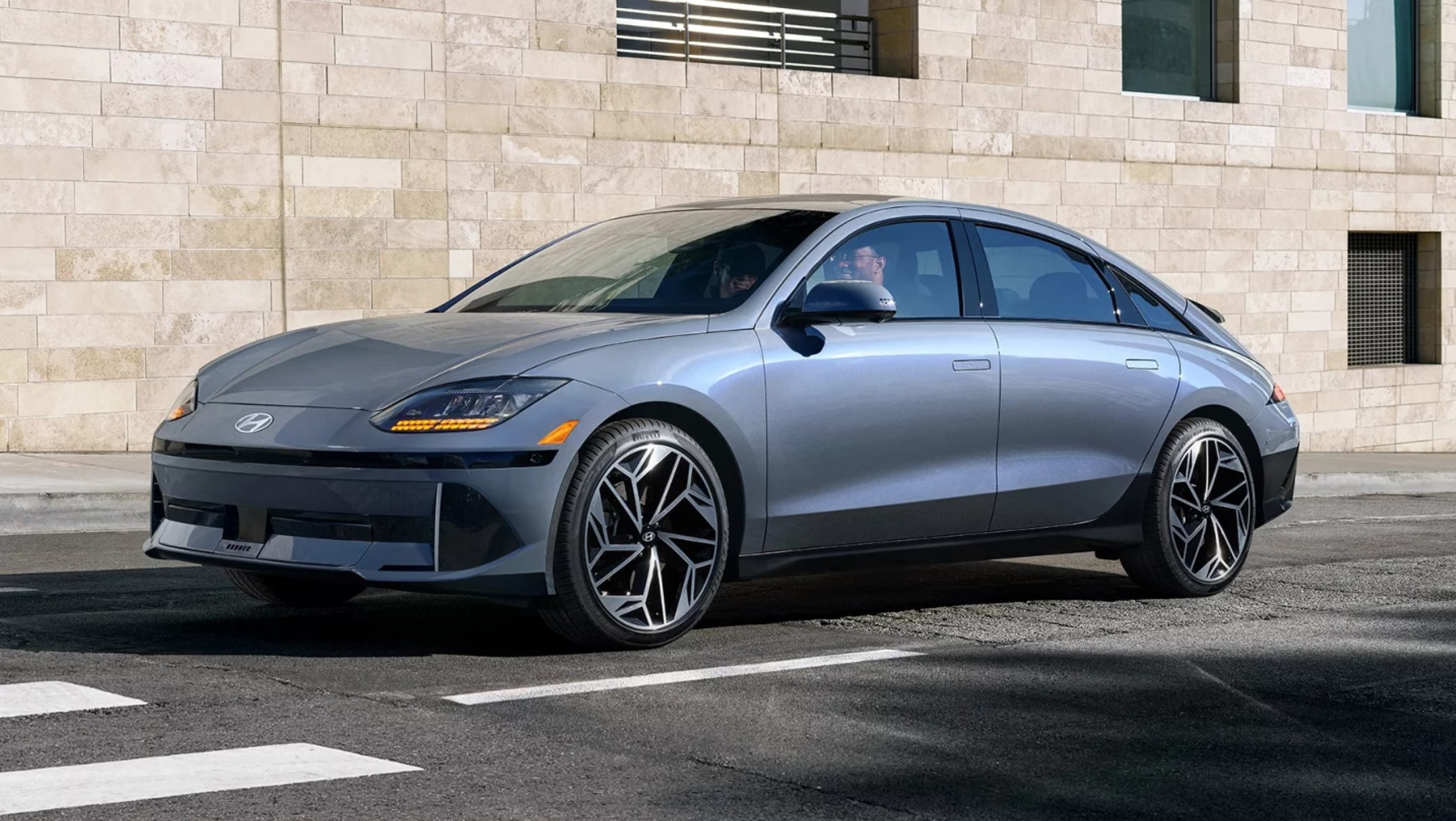
The Hynundai Ioniq 5 may have that spacious crossover SUV design, but it does cost a little bit more than the Ioniq 6 — which is closer to a sedan. That means it's sleeker and more aerodynamic, with a strong emphasis on design and functionality.
The Ioniq 6 offers up to 361 miles of range per charge, a pair of 12.3-inch displays on the dash board, a front seat built with your comfort in mind, and all the safety features you'd expect from a modern electric car. That includes a heads-up display, surround-view cameras, autonomous driver assistance, remote parking, automatic emergency brakes, lane keep assist and more.
The car also supports digital keys on iPhone, Apple Watch and Samsung phones, alongside Android Auto and Apple CarPlay on the center display. Which isn't bad going for a car that costs under $40k.
Tesla Model 3 — from $38,990
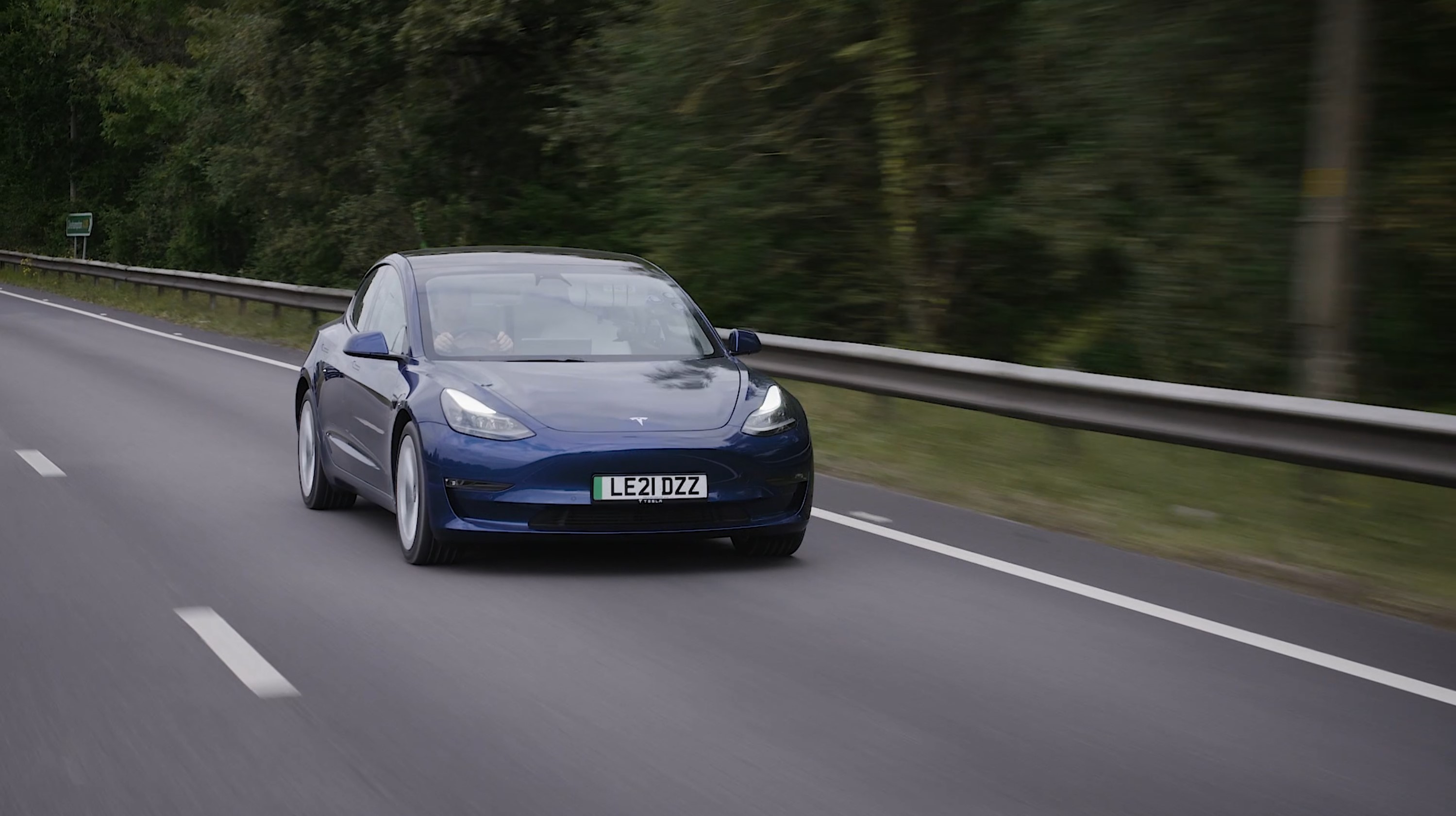
While Tesla's prices jump around more than a kid at a trampoline park, recent price cuts mean the entry level model is now firmly under $40,000. That entry-level rear wheel drive model can drive 272 miles on a single charge and can reach speeds of 125mph. On top of that it comes with Tesla's Basic Autopilot, which takes the stress off driving on long stretches of highway.
While Tesla's popularity has waned, in part thanks to the controversial actions of its CEO, they are still popular electric cars. There's a lot on offer, and you get access to Tesla's Supercharger network — which is arguably the best served EV charging network in the U.S.
But you will have to content with the lack of physical buttons in favor of touch screen controls and no support for Android Auto or Apple CarPlay. They may be a dealbreaker for some.
2023 Kia Niro EV — from $39,600
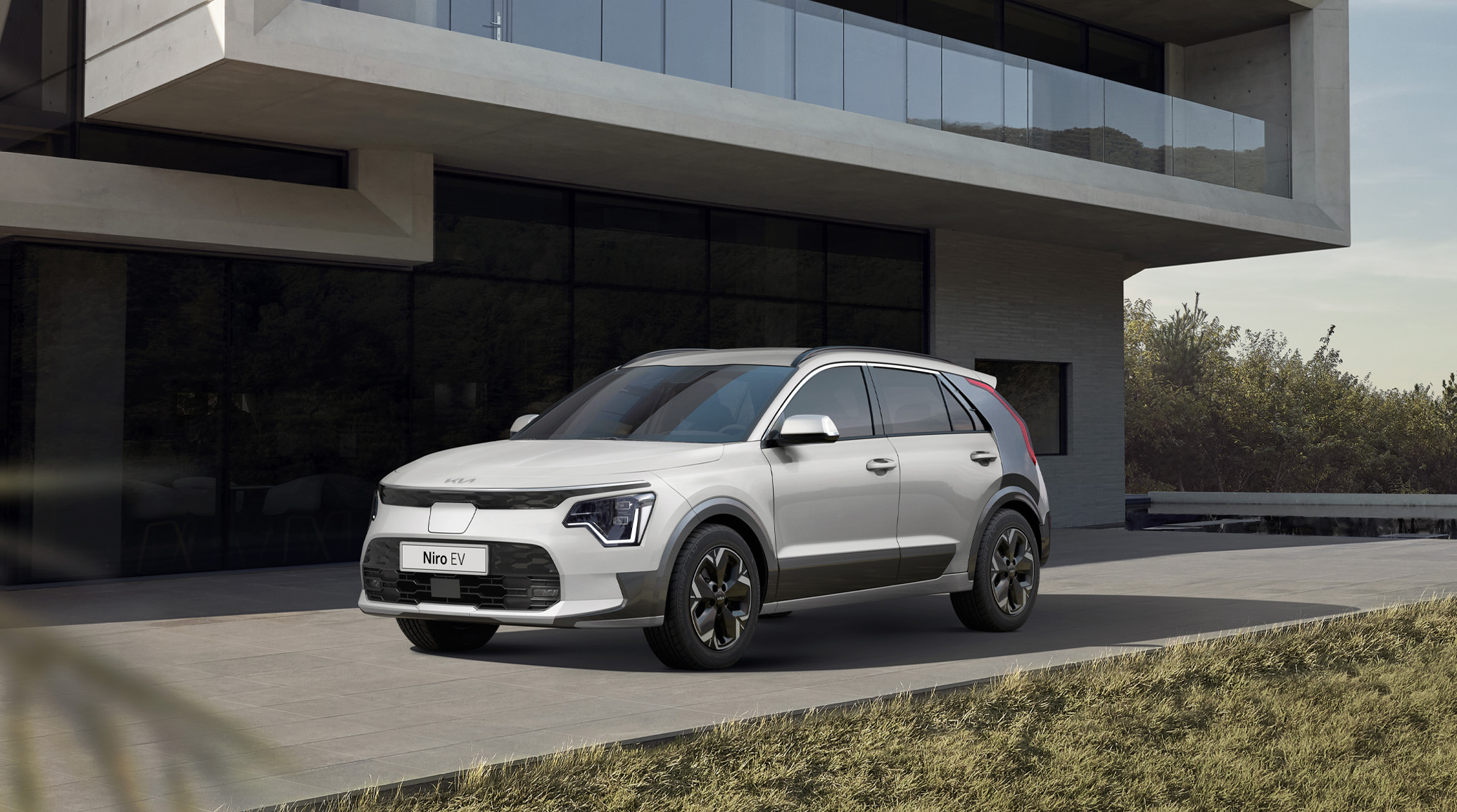
There was a lot to like about the 2022 Kia Niro EV, but the 2023 model pushes things up a notch — starting with knocking $500 off the price tag. That means prices for the car start at $39,450. Sadly, though, it's not eligible for the federal tax credit.
The 2023 Niro EV comes with the same 64.8 kWh battery pack as last year's model, which translates to 253 miles of range. Charging from 10-80% takes around 43 minutes at an 85 kW charger, and the onboard 11 kW AC charger should easily handle an overnight recharging session. It takes 6.7 seconds to go from 0-60 mph.
The interior has enjoyed a complete redesign, and you'll find a 10.3-inch central touchscreen display, wireless Android Auto and CarPlay, Google Assistant and Alexa support, Harman/Kardon audio, and the new Digital Key 2.0 — which offers remote access to certain car functions. It may not be as luxurious as the Kia EV6 or Hyundai IONIQ 5, but it's not that far off.

Tom is the Tom's Guide's UK Phones Editor, tackling the latest smartphone news and vocally expressing his opinions about upcoming features or changes. It's long way from his days as editor of Gizmodo UK, when pretty much everything was on the table. He’s usually found trying to squeeze another giant Lego set onto the shelf, draining very large cups of coffee, or complaining about how terrible his Smart TV is.
 Club Benefits
Club Benefits





